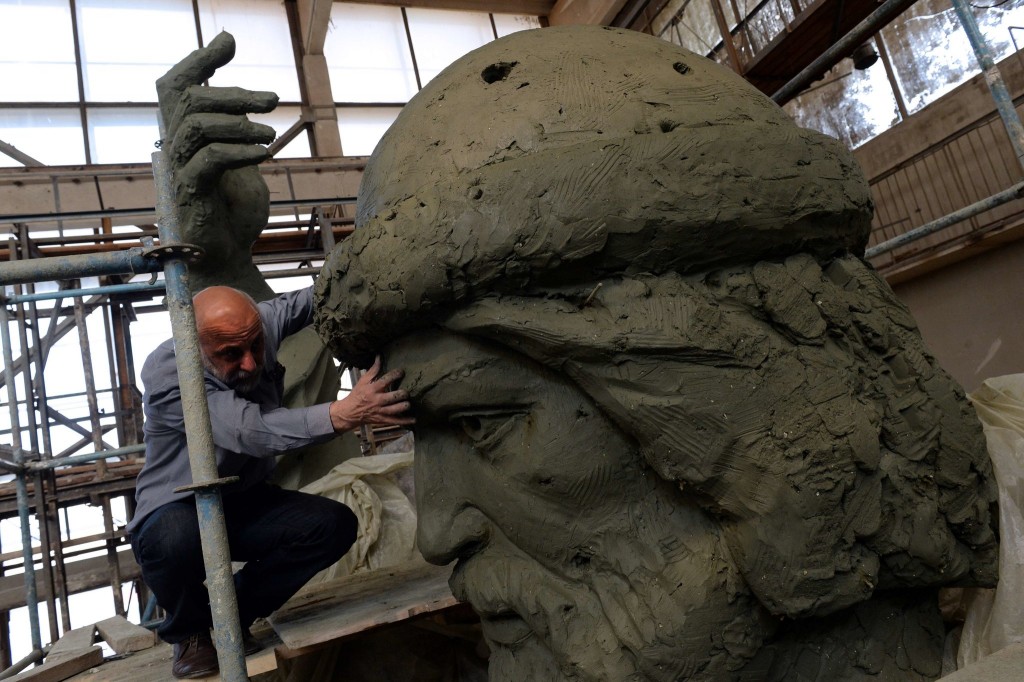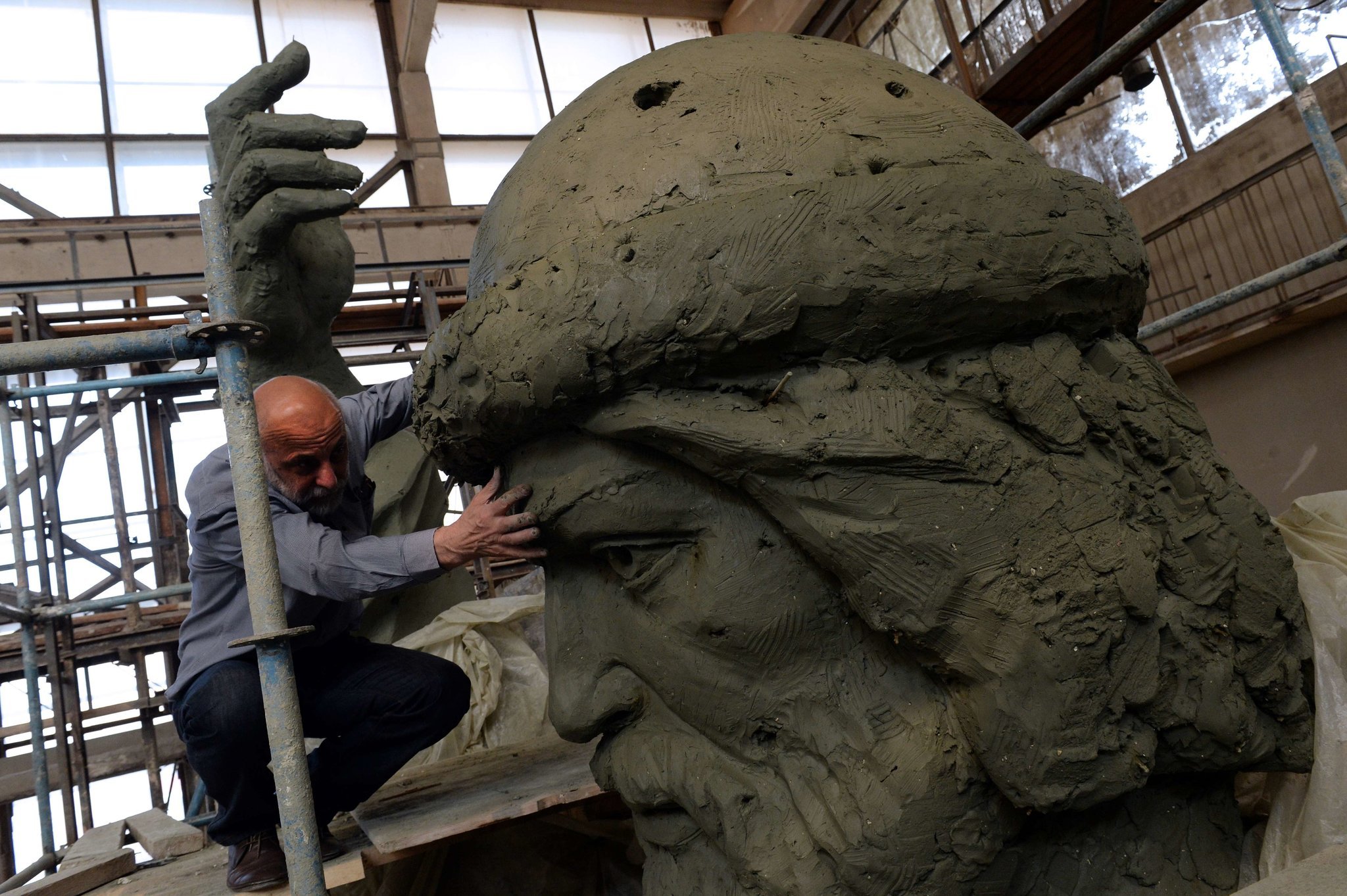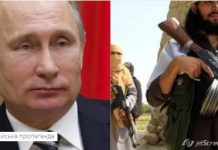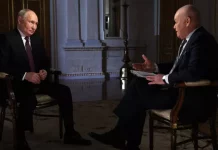
When you come back to Moscow after a long absence the city overwhelms you, swallowing you up in its around-the-clock bustle. It is as hectic and surreal as ever. Parks, cafes and clubs are all full of well-dressed people. And those with clout, the powers that be in the political, economic and media worlds, continue to add new diversions.
Prominent among them is the $27 million Garage Center, a sophisticated museum of contemporary art that has just opened in Gorky Park. It was created by the socialite Dasha Zhukova, funded by her husband, the billionaire tycoon Roman Abramovich, and designed by one of the world’s most influential architects, Rem Koolhaas.
Though Ms. Zhukova’s collection of Rothkos may not be everyone’s cup of tea, Muscovites will soon have another marvel to admire: a 24-meter statue of Vladimir the Great, the prince who Christianized the state of Kievan Rus in the late 10th century. This storied leader is depicted, sword at his side, bearing a large cross, standing in a dignified, traditional manner. What’s more surreal is the controversy over where to put it.
Originally, Prince Vladimir was to be placed on an observation deck in the Sparrow Hills overlooking Moscow. Now city officials want to erect it in Lubyanka Square, in front of the headquarters of the Federal Security Service, or F.S.B., where a statue of the widely feared Felix Dzerzhinsky once stood. The monument to the founder of the Cheka, the precursor of the K.G.B., was toppled in 1991, but Communist Party officials want it back in its former site and have proposed a referendum to resolve the issue.
They are unlikely to get what they want. Dzerzhinsky may be a Communist saint, but the symbolism of the prince’s statue is inescapable. It will celebrate the new Vladimir, not just the old one. This may be obvious, but the subject is avoided in polite conversation.
There are other topics — rising prices, the fighting in Ukraine, the shape of things to come — that people don’t like to think about, even though these subjects are at times unavoidable. The economy is entering “a full-fledged crisis,” former Finance Minister Alexei Kudrin told Parliament recently. He warned that Russia’s gross domestic product is forecast to be 4 percent lower this year than it was in 2014. Meanwhile, food prices are rising. Official figures indicate a 23 percent jump for the year ending in March, but an informal survey of grocers in my neighborhood suggests a 30 percent jump is more realistic.
For the first time in 10 years, the government said it won’t be able to raise pensions and other social benefits to fully match inflation, which is officially forecast at 12 percent for the current year. In the first quarter of 2015, more than 23 million people were officially classified as living below the poverty line, three million more than last year.
Nevertheless, polls show that President Vladimir Putin is even more popular now than he was a year ago. Most of my countrymen see the reasons behind our economic failures elsewhere, not in Russia. “Why are they doing this to us?” a neighbor who knows I am a journalist asked me, referring to Western sanctions. His remark was typical. I try to explain that they were imposed in response to the Kremlin’s land grab in Crimea, and that the plunge in oil prices was due to a variety of global economic and political factors. But he just gave me that smile. He knows what’s really being done to “us” by “them.”
He’s just one of the many Russians who live in an imaginary, media-concocted universe. My countrymen have gone passive; they’ve become an audience to a Kremlin-distilled version of current events; they watch rather than act. Even as our government becomes less and less “Soviet,” as it consolidates and whittles down health clinics, schools and other services, the Kremlin keeps imposing the old Soviet world view on our citizens.
Domestic issues do not merit airtime on major political news and talk shows. International stories take the lion’s share of programming. Television presents everything that is going on in the world as an epic battle between a great nation and evil foreigners. The recent FIFA corruption scandal and the resignation of its chairman Joseph Blatter was presented by “Vesti Nedeli,” an important weekly commentary show, as an attempt by the United States to take over world soccer. Russia and Putin were portrayed as taking a brave stand to protect the game. But once Mr. Blatter resigned the show stopped following the FIFA story.
Discussing Russia’s ouster from the G-8, Vitaly Tretyakov, a fiercely pro-Putin commentator on one of the major political talk shows, referred to our country as a “dissident” nation. Mr. Tretyakov, who was a forceful advocate of a free press back the 1990s, declared, without irony: “To be a dissident is a noble vocation.” He was referring of course not to the Russian opposition (they are all just stooges of the West anyway), but rather to our courageous president and his associates, who dare to show their independence and integrity by standing up to American-led Western bullying.
The message is always the same. Mr. Putin battles corrupt global elites who are interested only in keeping power. Their center is Washington. Its “party bosses” are depriving Russia of her rightful place in the world. They have defamed and isolated her, sent her into exile, cut her off from her sources of wealth.
The universe presented on Russian television is nothing but a bizarre, inverted image of an imaginary Soviet Union, a world in which the Cold War is turned on its head. It is now the people in the Kremlin — the Putin supporters, not his critics — who are presented as the true dissidents of our times. They are the heroes who take a stand against global injustice and foreign domination. In Mr. Putin’s television dystopia, the “party bosses” in Washington are doing to Russia exactly the kind of things the Soviet Communist leadership and secret police used to do to Cold War era dissidents and human rights campaigners like Andrei Sakharov. These foreigners are depriving Russia of her rightful place in the world; they are sending her into isolation, cutting her from her sources of income and casting aspersions upon her honor.
Meanwhile, Moscow’s citizens play on, erecting monuments, frequenting cafes and otherwise amusing themselves. They don’t want to see that their own economy is in crisis, that their beloved country is widely viewed as one of the world’s most disruptive forces, and that their future appears increasingly grim. Instead, they sit back and watch the show, entranced by the lie that their country is somehow engaged in a holy struggle worthy of Prince Vladimir.
By Maxim Trudolyubov, The New York Times
Maxim Trudolyubov is the opinion page editor of the business newspaper Vedomosti and the author of a forthcoming book on power and property in Russia.





